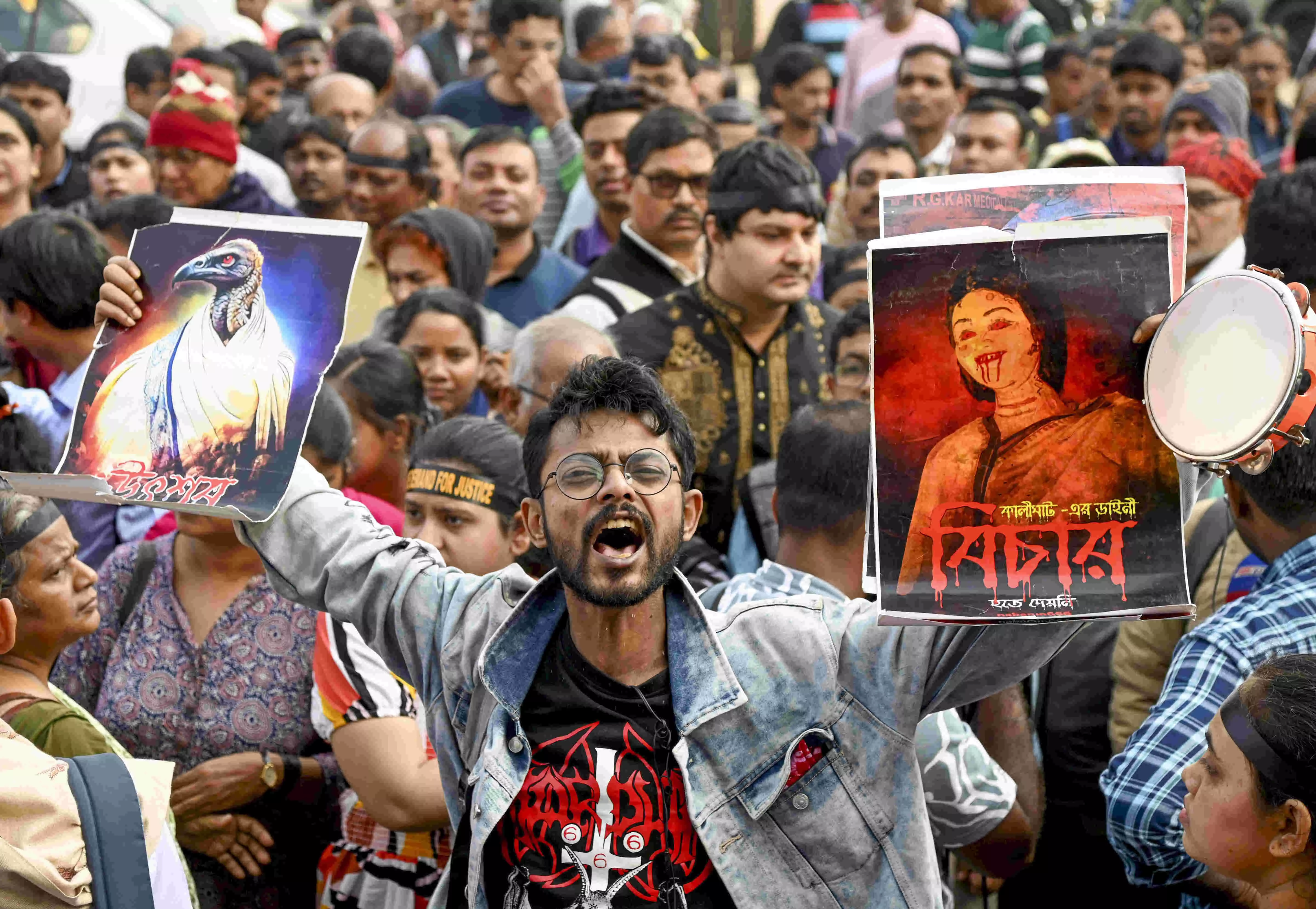Justice served?

The verdict in the RG Kar rape and murder case has stirred a heated debate in West Bengal and across the country. The Sessions Court’s decision to sentence Sanjay Roy to life imprisonment instead of the death penalty has left many wondering whether justice has been truly served in the case. The aforementioned court intended to follow the Supreme Court’s guidelines regarding the parameters for “rarest of rare” cases. However, there has been unsatisfactory public reaction throughout the country.
The horrific crime, which took place in August 2024, shook the nation to its core. Humanity touched its nadir in the form of brutality carried out by the culprits. The horrific incident led to an emotive eruption, especially among doctors, who, apart from seeking swift justice for the victim’s family, protested to demand better safety in workplaces. The case was initially investigated by the West Bengal police, but allegations of negligence and cover-ups led the High Court to hand it over to the CBI. However, the CBI’s handling of the case has been criticised no less vigorously. There were alleged delays and lapses in filing chargesheets against key figures like the former hospital principal and a police officer. The efficiency and accountability of the investigative agency has come under dark cloud.
The Session Court’s decision was based on the principle that death penalties should be reserved for cases where there is no possibility of reforming the convict. The court probably felt that Sanjay Roy, at 35 years old, could potentially be reformed. This reasoning, however, has been met with strong opposition from the victim’s family, who feel that the brutality of the crime warrants the harshest punishment. Many believe, and not without reason, that the court’s decision does not sync with the gravity of the crime or the collective sense of justice. Chief Minister Mamata Banerjee has openly criticised the verdict, stating that the state government would have ensured a death penalty if it had been allowed to investigate the case. She also highlighted past instances where the state police had successfully secured capital punishment in cases of similar gravity. The opposition BJP has also weighed in, criticising both the handling of the case and the verdict; though it has defended the CBI’s role. Civil society and the doctors who protested have also echoed the sentiment that the punishment does not match the severity of the crime.
This case has once again reignited the debate over death penalty. Some see it as a necessary deterrent for heinous crimes, while others argue that it is not the ultimate solution to deep-rooted societal problems. Governor CV Ananda Bose has emphasised that punishment alone cannot address the rising incidents of violence against women. He called for broader societal reforms to tackle the root causes of such crimes. While his argument holds merit, it has no answers for the degree of impunity already enjoyed by culprits of severe gendered crimes. This impunity is partly because of the patriarchal nature of Indian society, and partly because of inherent loopholes in India’s legal system where conviction rate in crimes against women is abysmally low. This is despite the existence of stringent laws and judicial guidelines in this regard. A greater degree of deterrence may be the need of the hour to tighten the bolts of India’s patriarchal society and legal system. West Bengal CM’s appeal for death penalty should be considered genuinely by the High Court. The demon-like behaviour of the culprit seems less worthy of lenience.
The RG Kar case is a chilling reminder of the challenges faced by women in securing justice in a male dominated society. It also highlights the need for more efficient and transparent investigations, better workplace safety measures, and a justice system that balances retribution with reformation. While the High Court will now decide on the state’s appeal for the death penalty, the case has already exposed significant flaws in India’s institutions. The CBI, too, must answer the allegations of negligence with a sense of urgency.



